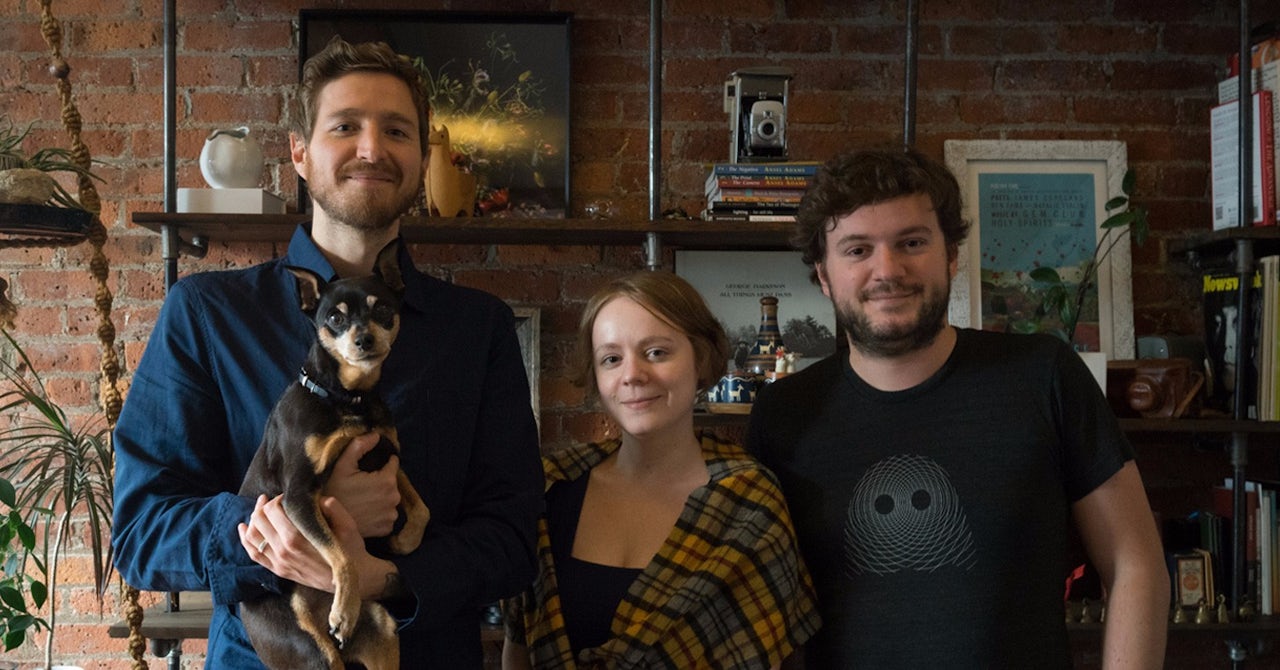It’s a tough time for streaming music services. Pandora is melting down. SoundCloud says it only has enough funding to make it through the end of the year. Even Spotify is unprofitable. How could a small music blog aggregator run by three 30-somethings from their apartments in the New York City area possibly survive?
Hype Machine was founded in 2005 by Anthony Volodkin, who was 19 and in college. He picked out hundreds of influential music sites and built an algorithm to scan them for audio files and aggregate the most blogged about tracks. The result is a playlist of new music that is hot but also off the beaten path. It also creates a playlist of most popular tracks based on what its users like. It is influential as a tastemaker within a certain sphere; it’s rumored to be a factor in Pitchfork’s selection process and the company has had to deal with labels and public relations reps attempting to game its charts. “I’ve had people email me to say they need to be on Hype Machine because their agent won’t sign them until they do,” Zoya Feldman, one of Hype Machine’s three full-time employees, told The Outline.
Today, the site has about 400,000 monthly visitors, said Volodkin, but its heyday was around 2009 to 2010, when excitement around streaming music — especially SoundCloud, which billed itself as YouTube for audio — was swelling. That was the period when people shifted from downloading music illegally to paying to stream it online, industry watchers said. Back then, even a smaller site could sustain itself through advertising (Hype Machine is ranked 16,757th largest website in the world by traffic, according to Alexa. Its highest ranking was 4,951th, in mid-2010). The economics soon changed. Advertisers started to shift toward programmatic advertising, where buying and selling is done by algorithms on an automated market as opposed to being negotiated by sales teams. That meant Hype Machine’s ad partners no longer had success pitching it to brands as a small but engaged, specialized audience. Programmatic advertising also brings in substantially less revenue. “A lot of [ad] spending is going to Facebook and a handful of large media properties like BuzzFeed,” Volodkin said. “We’ve been pretty conservative with our finances so we’ve been able to have some time to figure out a solution. But it’s definitely a pressure.”
Hype Machine considered raising venture capital back in 2007, Volodkin said. But it seemed like the music startups that took venture capital just ended up scaling too fast and taking on more costs than they could sustain. This happened to imeem, a chatting service that added music sharing but ended up running out of cash and getting acquired by Myspace, which then shut it down.
Hype Machine stayed indie. They built Android and iPhone apps, threw parties at South by Southwest, and added a ranking for music videos. Without cash investment, they could never build everything they wanted to — but at least they didn’t have investors pushing them to double their audience every month.
Unfortunately, the money finally got too tight. Volodkin, Feldman, and Hype Machine’s third full-time employee, Dave Sutton, had never had to take on extra work in order to support themselves, but Hype Machine’s advertising revenue had fallen so low that it was time for a reckoning: give up, sell out, or try to find a new revenue source.
“...You don’t need to be Snapchat, you don’t need to be Instagram, you don’t need to be huge to have a product that people can love.”
Volodkin was completely opposed to giving up. “I just think a service like this is super important to have on the internet and I’m really interested in finding any way possible to have it continue,” he said. The trio launched a crowdfunding campaign on May 5, asking supporters to contribute monthly. Volodkin calculated that if they got 3,000 monthly supporters, they could keep running Hype Machine full time. If they fell a couple hundred short, they could still keep running Hype Machine full time, although it would potentially be uncomfortable. If they fell too far short, they would have to take on second jobs, but they would continue running Hype Machine part time.
Luckily for him, the campaign is going well. Hype Machine is up to 2,678 supporters as of this writing, with the average donation around $5. That’s enough to cover the site’s costs, plus rent for its three employees, and since those supporters are committing to monthly contributions, it has the whiff of sustainability.
There aren’t a ton of truly small businesses on the internet. Companies like Hype Machine are what venture capitalists call “lifestyle businesses” — companies that make enough to support their owners’ lifestyles, and no more. The alternative is a scale business, which sucks up hundreds of millions of users and grows fast enough to make a 10x return on investment for its backers. Because licensing fees make music services so expensive to run, it’s difficult to even pull off a scale business: Spotify is the dominant player, but it’s struggling to turn a profit. Exempt from this pressure are Apple, Amazon, and Google, which have the advantage of not needing to make money off their streaming sites. If companies like Hype Machine fold, these giants will be all that’s left.
On a conference call, Volodkin, Feldman, Sutton, and I struggled to think of what might be analogous to a mom-and-pop store on the web. “Advertising has so totally gone into the toilet that membership pretty much saved my website,” said Jason Kottke, who runs his popular blog as a one-man business with supporters contributing through the crowdfunding site Memberful. The comic blog Wait But Why is a three-person shop supported through the crowdfunding site Patreon. Six Colors is a two-person tech blog and podcast publisher with a staff of part-time contributors supported by subscriptions. “Services like Memberful or Patreon make it really easy to build lightweight membership capabilities for even small sites,” Kottke said. “That's the original promise of the web, right? Small pieces loosely joined...not these monolithic sites like YouTube or Facebook which extract huge value from creators and give just a fraction of it back.”
One well-known example of this model is MetaFilter, a 17-year-old web community known for being a rare bastion of kindness, as well as thoughtful commentary about news articles. For exactly two years — between 2010 and 2012 — MetaFilter was a real company able to provide its six employees with dental coverage thanks to small contributions from its 62,000 members and Google-powered advertising. But when Google made a change that lumped MetaFilter in with low-quality sites, the company’s ad revenue plummeted. By the time Google fixed the issue, the changes in the advertising market that Volodkin mentioned had taken place. MetaFilter never returned to its former revenue, but it was able to convince enough subscribers to chip in more dollars that it has stayed relatively stable and employs a small, mostly part-time staff.
“I think people do respond to that idea that you don’t need to be Snapchat, you don’t need to be Instagram, you don’t need to be huge to have a product that people can love,” Feldman said.
What the staff of Hype Machine admires about MetaFilter is just the fact that an independent, small-scale business is able to exist on the open web. It has been considered “uncool or unserious to even attempt a business like that,” he said. “You were sort of encouraged to raise venture capital for a big product, get users, and sell it or whatever. I feel like I’ve seen far fewer stories about people trying to do things a different way.”
I asked what the elevator pitch is for supporting Hype Machine. “Keep the internet weird,” Feldman said.
Correction: An earlier version of this story misstated Jason Kottke's crowdfunding provider; it is Memberful, not Patreon.

